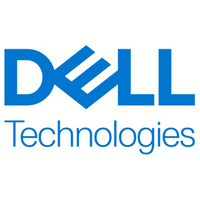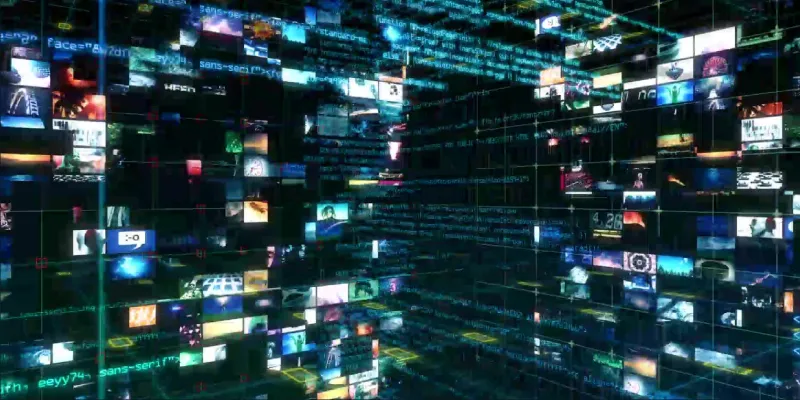
Dell Technologies
View Brand PublisherEmerging technologies and the art & science of possibilities
We live in an age where technology is so seamlessly integrated into our lives that we take its ubiquity for granted. Emerging technologies have changed every aspect of our lives, from the way we work, to the way we communicate and even the way we manage our health and finances.

These technologies are also fueling further innovation, augmenting human intelligence, and increasing productivity.
Dell Technologies’ recent ‘Future of Work’ report, published in association with research group Institute for the Future (IFTF) aims to explore how emerging technologies will transform the workplace as human and machine partnerships increasingly become the norm. In the face of such advancement, organisations are likely to face some key dilemmas.
Collaboration, not substitution
One of the constant refrains we hear is that ‘The robots are coming for our jobs’. This is driven by the apprehension that as AI systems get more sophisticated, there may come a time when they are able to do the work that humans do. The reality is a little less extreme. Over time, we will find that technologies like AI and ML will perform repetitive tasks at speeds that are beyond human capabilities.
For example, humans work in shifts at the office or factory. Now, if we have a bot that works 24*7 instead, we could build a network of bots that ‘talk to each other’, and all of our routine tasks can get done without human effort, which can then be redirected to making key decisions and tasks that really maximize our brainpower.
But even for a seamlessly symbiotic workflow, we will need to recognize and allocate those tasks that are better suited to machines and program our AI systems to recognize where human intervention will be required.
Upskilling for the future
Another key requirement for human-machine partnerships to work is upskilling of the workforce. According to consulting firm Korn Ferry, India is the only country expected to have a surplus of financial and business services talent by 2030. However, not all will have the requisite skills as education in the country is still largely classroom-based. To have a workforce that is relevant in the future, people will have to be retrained with a special focus on AI capabilities. This would mean gaining an understanding of the machine’s capabilities; conversely, machines will also need to be ‘trained’ on human capabilities to facilitate a more productive partnership.
Technology itself will play a role in upskilling people, even if they are from a non-technical background. At our Chennai facility, we have assembly-line workers who assemble laptops. We give them VR glasses that actually teach them what needs to be done step-by-step so they don’t make mistakes. In the past, one had to read and memorize bulky training modules, but with VR, you are being trained on-the-go. Fewer mistakes are made and from an economic perspective, we support and uplift people who are not from a tech background and help enable them with a better quality of life.
Read more about how Dell Technologies is shaping the future here.
Data and privacy concerns
In this era of constant innovation, I believe data and everything around it are going to be the top disruptive trends of our time. Data is going to transform the way we function and create far richer customer experiences than those that currently exist. At Dell, we keep the customer at the heart and build models around their needs to help them build great customer experience journeys.
Amidst this mass proliferation of data, one dilemma that will arise will be ensuring that employees’ rights and their data are protected. We should be focusing on data privacy as we have seen many large organizations lose credibility over lawsuits. Countries like China and India are in the midst of creating strong regulations around data privacy.
We also need a hybrid strategy focused on security cloud protocol, ensuring that the solutions being used are secure. Dell focuses a lot on security, and security is programmed in at every level of our customer delivery.
Automation and transformation
No conversation around transformative technology would be complete without a mention of IoT, AI/ML, robotic automation and Blockchain. India is at the crossroad of massive digital disruption. We are seeing a lot of investment in these by the government, enterprises and startups. Driving this transformation is data, and companies are altering their business models to leverage data and give customers the best experience possible.
For example, uses your location data to show you restaurants in your area. It then factors in the delivery time from the data it gets from Google Maps, along with how long the food will take to cook before giving you an estimated delivery time. All this happens in a matter of seconds.
However, the one deterrent for smaller companies will be the cost involved in planning and the building the resources that go into creating IT infrastructure. Many CIOs are still struggling to balance legacy systems and investments in digital transformation.
Dell is betting big on various types of transformations, be it workforce, security, IT or application. We are leveraging our own infrastructure capabilities and investing heavily in enabling workforce and security transformation across Dell and for all our customers as well.
Interested in exploring a career with Dell technologies? Click here.







